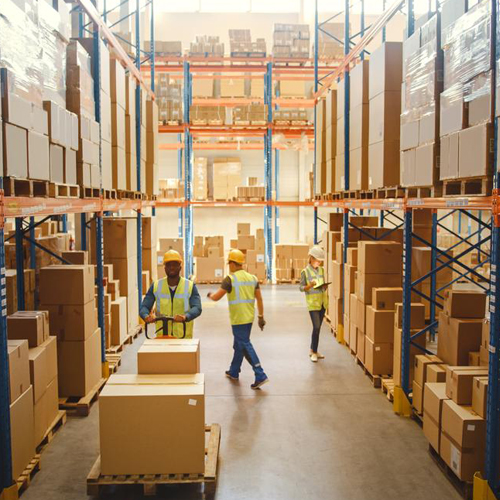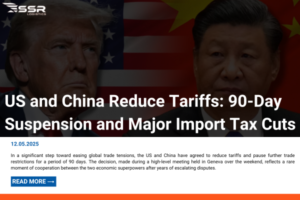Rice export plays an important role in the Vietnamese economy, not only helping to improve farmers’ lives but also contributing to the country’s economic growth. Vietnam is one of the world’s leading rice exporters, thanks to its quality and competitive prices. However, not everyone knows what steps are involved in rice export procedures and what legal documents are required. The following article will provide complete information on the import and export process and procedures for readers to better understand!
Assessing the current rice export situation
Vietnam’s rice export situation in 2024 is showing many bright spots. In the first quarter, Vietnam exported more than 2.18 million tons of rice, reaching a turnover of 1.43 billion USD, up 17.6% in volume and 45.5% in value over the same period last year.
The Philippines is the largest market, accounting for 45.5% of Vietnam’s rice export turnover. Other markets such as Indonesia and Malaysia also recorded strong growth.
 Vietnam’s rice export situation is still developing well, specifically in the first quarter, Vietnam exported more than 2.18 million tons of rice
Vietnam’s rice export situation is still developing well, specifically in the first quarter, Vietnam exported more than 2.18 million tons of rice
In 2024, Vietnam is expected to export about 6.5 million tons of rice. Factors such as harsh weather due to El Nino and export restrictions from India have created opportunities for Vietnam to expand its market share.
Vietnam is making efforts to diversify its markets and improve rice quality, taking advantage of Free Trade Agreements (FTAs) to expand exports to the EU and other demanding markets.
Legal regulations on rice export
Policies and regulations related to rice export procedures
Rice is a commodity encouraged to be exported. However, for first-time exporters, it is necessary to clearly understand some of the following policy regulations:
- Decree No. 109/2010/ND-CP: Regulations on rice export business.
- Decree No. 107/2018/ND-CP: Regulations on rice export business.
- Regulations on several articles of Decree No. 107/2018/ND-CP dated August 15, 201 8, of the Government on rice export business.
- Document No. 02/VBHN-BCT (2018): Regulations on several articles of Decree No. 109/2010/ND-CP dated November 4, 2010 of the Government on rice export business.
Conditions and requirements for exporting rice
To register for rice export business according to regulations, enterprises must ensure the following requirements:
- Own at least 01 warehouse for storing rice and 01 milling, grinding facility, or rice and rice processing facility that meets the standards issued by the competent authority according to the provisions of the Law on Standards and Technical Regulations (QCVN 01 – 133: 2013/BNNPTNT);
- Warehouses, milling, grinding, and rice processing facilities owned by traders or rented by traders from other organizations or individuals must have a written lease contract according to the provisions of law with a minimum lease term of 05 years.
- Exporting units with a Certificate are not allowed to lease or sublease warehouses, milling, grinding, and rice processing facilities that have been declared to prove that they meet the business conditions in their application for a Certificate.
HS Code and Tax of Rice
HS Code of Rice
Each type of rice will have a different HS Code. According to regulations, the HS code of rice is in chapter 10 – Cereals, belonging to group 1006. HS code details are as follows:
- HS Code of Paddy: 100610
- HS Code of Brown Rice: 100620
- HS Code of Milled or Polished Rice: 100630
| MÃ HS |
MÔ TẢ HÀNG HÓA |
| 100610 | Thóc: |
| 10061010 | Phù hợp để gieo trồng |
| 100620 | Gạo lứt: |
| 10062010 | Gạo Hom Mali (SEN) |
| 10062090 | Loại khác |
| 100630 | Gạo đã xát toàn bộ hoặc sơ bộ, đã hoặc chưa được đánh bóng hoặc hồ (glazed): |
| 10063030 | Gạo nếp (SEN) |
| 10063040 | Gạo Hom Mali (SEN) |
| 10063050 | Gạo Basmati (SEN) |
| 10063060 | Gạo Malys (SEN) |
| 10063070 | Gạo thơm khác (SEN) |
| – Loại khác: | |
| 10063091 | Gạo đồ (1) |
| 10063099 | Loại khác |
Taxes when exporting rice
According to regulations, goods exported from Vietnam are exempt from VAT (0% VAT), and rice is also not subject to import tax. However, there are special cases when exporting to some markets, the import tax rates can be quite high. For example, India imposes an import tax of 20% on Vietnamese rice, the Philippines is 35%, …
A notable point is that the EU has exempted export tax for 10 types of Vietnamese rice (including ST24, ST25, Jasmine 85, ST5, ST20, Nang Hoa 9, VDD, RVT, OM4900, OM5451 and Tai Nguyen Cho Gao), thereby expanding opportunities for Vietnamese enterprises to boost rice exports to the EU market.
Notes when exporting rice
Policy and export contracts for rice
According to the decree on the future of rice export, enterprises need to have a certificate of eligibility for business and rice export from the Ministry of Industry and Trade. When exporting rice, it is necessary to register a rice export contract.
Plant quarantine when carrying out rice export procedures
To export rice, enterprises need to prepare a plant quarantine registration dossier:
- Plant quarantine registration form (according to the form of the quarantine agency specified in Appendix IV issued with Circular 33/2014/TT-BNNPTNT);
- Commercial invoice, bill of lading, packing list (if any);
- Authorization letter from the owner of the goods (if the registrant is the person authorized by the owner of the goods);
- Sample rice of the shipment to be quarantined.
If the shipment meets the quarantine requirements of the importing country, the Plant Quarantine Agency will issue a plant quarantine certificate to the enterprise.
Labeling goods when exporting rice (Shipping mark)
Enterprises should label goods – shipping mark on packages to ensure smoother export customs clearance. Shipping mark usually has the following contents:
- Name of goods in English
- Name of the importing unit
- Origin of goods: MADE IN VIETNAM
- Order number of packages/total number of packages
- Contract number/invoice
- Notes on arrangement and transportation of goods (if any). For example: Easy-to-grab goods, goods that need to be placed vertically, etc.
Rice Export Process
The customs procedures for rice export are quite complicated and challenging. Understanding each step in this process will help you transport goods more smoothly and avoid unnecessary risks.
Checking the conditions for rice export business
Step 1: Traders themselves declare the application for a Certificate, take legal responsibility for the content of the declaration, and documents, and meet the conditions for rice export business.
Step 2: The Department of Industry and Trade coordinates with the Department of Agriculture and Rural Development and relevant agencies to inspect warehouses and processing facilities after issuing the Certificate. Within 5 working days from the end of the inspection, the Department of Industry and Trade sends a report to the Ministry of Industry and Trade, proposing handling measures if there are violations, along with the inspection record.
Step 3: Annually or unexpectedly, the Ministry of Industry and Trade and relevant agencies will inspect the maintenance of rice export business conditions of traders, ensuring that they continue to meet the standards after receiving the Certificate.
Registering rice export contracts
According to the decree on the future of rice export, enterprises must have a certificate of full conditions for business and rice export from the Ministry of Industry and Trade. When exporting rice, enterprises need to register rice export contracts. The dossier for registering rice export contracts includes:
- A document registering a rice export contract with the Vietnam Food Association;
- A fully sealed rice export contract (copy with original for comparison);
- Inventory report, with rice output of at least 50% of the rice volume in the registered export contract;
- A certificate of eligibility for rice export issued by the Ministry of Industry and Trade (copy).
In case of priority according to government regulations, enterprises need to submit an additional document requesting priority and a summary report on the direct purchase of paddy and rice, through agricultural product consumption contracts with producers, along with relevant documents for proof.
Apply for rice export contract registration within 3 working days from the date of signing the rice export contract. If there is a legitimate reason, this period may be extended but not more than 10 working days;
Within 2 working days from the date of receiving the valid application from the enterprise, the Vietnam Food Association will register the enterprise’s export contract by the regulations of the Ministry of Industry and Trade if the enterprise meets all the criteria for registering a rice export contract as prescribed in Clause 1, Article 18 of Decree 109/2010/ND-CP.
Carry out customs declaration procedures
After completing the Rice Export Business Conditions Check and Rice Export Contract Registration, the enterprise is eligible to carry out the Rice Export Customs Procedures. This procedure is quite like the procedures for normal goods, however, importing countries will require additional Plant Quarantine, composition analysis (especially moisture), quality certification, fumigation certificate or certificate of origin to enjoy tax incentives.
The package export customs dossier includes the following documents and certificates:
- Commercial Invoice;
- Packing List;
- Bill of Lading;
And some documents may be required by the importing partner:
- Certificate of Origin;
- Certificate of Quality;
- Certificate of Health;
- Phytosanitary Certificate;
- Fumigation Certificate;
- Other related documents, …
 Fumigation Certificate by SSR Logistics
Fumigation Certificate by SSR Logistics
Complete the customs clearance process
After the documents are approved, submit them to the shipping line to complete the customs clearance process. Thus, the unit has completed the customs clearance process for exporting agricultural products.
SSR Logistics – A reputable and quality unit for rice export procedures
Rice export procedures are mandatory procedures, requiring strict compliance with import and export regulations. The process of carrying out this customs procedure is relatively complicated, time-consuming and requires a lot of expertise. Understanding this, SSR Logistics was born with the mission of becoming a reputable partner to support businesses in carrying out rice export procedures quickly, effectively and cost-effectively.
Why choose SSR Logistics?
- Experienced staff
- Professional process
- 24/7 dedicated support
- Competitive price
SSR Logistics’s Rice Export Procedures service includes:
- Free consultation on the customs clearance
- Support in preparing complete and accurate customs clearance
- Submit documents and monitor the progress of customs clearance
- Consult on solutions in case of problems
- Provide import and export freight services
With SSR Logistics, you can be completely assured of the implementation of Rice Export Procedures. We are committed to providing you with professional, reputable and effective services, helping you save time and costs.
Through this article, SSR Logistics hopes that customers have an overview of Rice Export Procedures in import and export. To explore more diverse knowledge in the field of logistics, please visit our Logistics Knowledge section.
SSR looks forward to becoming your reliable logistics partner, providing optimal solutions for your import and export business. If you have questions about our services, please contact us for specific advice.
With our experienced team, extensive network and flexible shipping & customs solutions, SSR Logistics is confident to deliver excellent services to our clients.
Businesses that need customs and import-export, please contact SSR Logistics via Hotline (+84) 911 988 484 or leave your information here for specific advice.
With a modern warehouse system and experienced transportation staff, SSR Logistics provides a variety of additional services such as: customs clearance, warehouse leasing, domestic transportation, international transportation by sea and air, and international express delivery.









